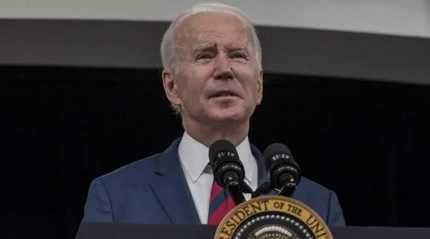
14 August 2022; MEMO: The United States and the administration of President Joe Biden have insisted that the country and its presence in the Middle East "is not going anywhere," countering claims that China is replacing it as the hegemon in the region.
Speaking to the American news channel CNBC, the US's special envoy for Yemen – Tim Lenderking – commented on the reported visit of Chinese President Xi Jinping to Saudi Arabia next week, saying that diplomatic visits by other world powers are to be expected.
He stated that Washington had firmly reiterated its commitment to maintaining its presence and influence in the Middle East during President Biden's visit to the region last month. "The major message that the president brought to the region is that the United States is not going anywhere," Lenderking said
He stressed that the US is "a vital partner to not only Saudi Arabia but each of the countries in the region," adding that it "can be counted on to remain in the neighborhood as a support for the countries and their security. That is an American priority."
READ: Amid an American decline, China is winning the Middle East
In what will be President Jinping's first official foreign visit in two years, he will reportedly meet with Saudi crown Prince Mohammed bin Salman in an effort to further boost ties between Beijing and Riyadh. According to critics, the Chinese premier is expected to be greeted with more pomp and celebration than Biden was met with in the kingdom last month, seemingly proving the decline of American influence in the region and the ascendancy of China.
Lenderking also commented on the maintenance of the UN-mediated truce in Yemen, which he said was strengthened by Biden's visit to Saudi Arabia. "I think we're better than 50%; I wouldn't have said that six months ago. We've got a moment to change the course of the conflict. This is the time to do it."
He highlighted the common goals between the US and China in regards to the situation in Yemen, stating his belief that Beijing also wants "to see progress in Yemen during their [current] presidency on the [UN] Security Council." The envoy called it an "important element where we can find commonality between us."




